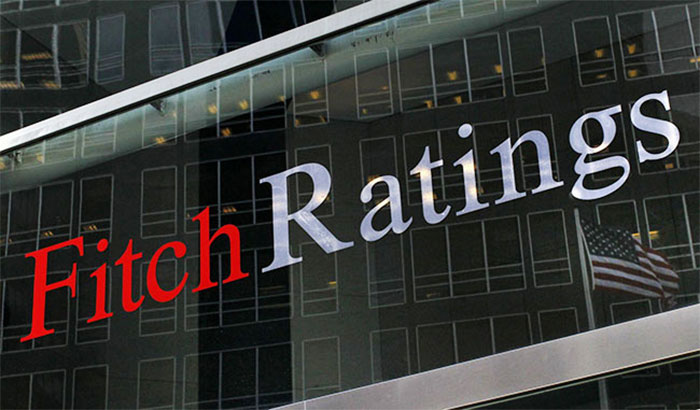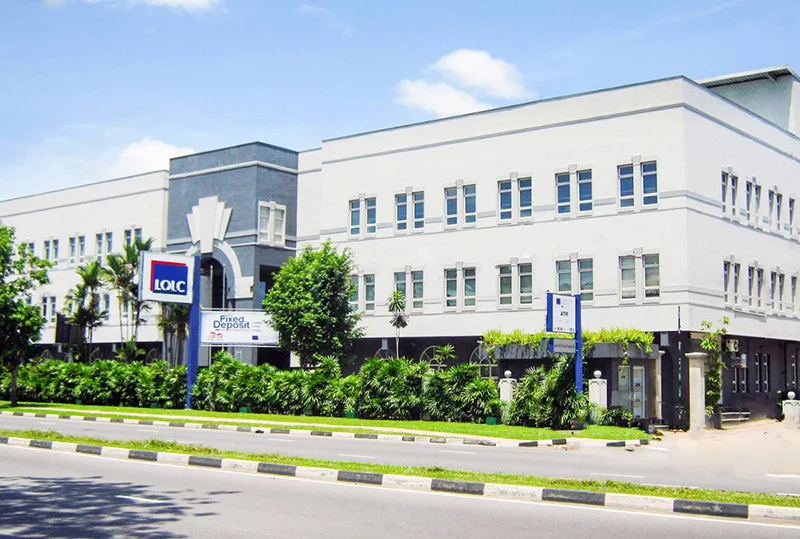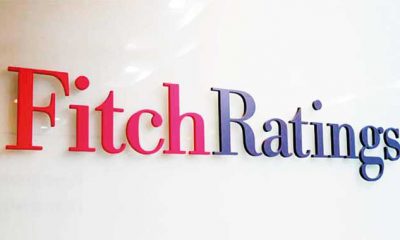Business
Sri Lanka’s ambitious budget agenda faces high implementation risks: Fitch Ratings

The targets laid out in Sri Lanka’s budget for 2024 will be challenging to meet even with the economic recovery that we expect to continue next year, says Fitch Ratings.
The fiscal deficit is set to be wider than our current forecast of 7.1% of GDP in 2024 in light of the new data, even after excluding bank recapitalisation costs, and the revenue/GDP ratio will be lower than we had assumed, Fitch says.
The report further states:
“The government is targeting a budget deficit of 9.1% of GDP in 2024, wider than a revised estimate of 8.5% in 2023. However, without bank recapitalisation costs, the deficit in 2024 would be a narrower 7.6% of GDP. Excluding recapitalisation costs, the budget targets a primary surplus of 0.8% of GDP in 2024, against a deficit of 0.7% in 2023. However, including recapitalisation costs pushes the 2024 primary deficit target to 0.6% of GDP.”
“The primary surplus goal for 2024, excluding bank recapitalisation, is broadly in line with the 0.8% of GDP projected by the IMF in March when it approved Sri Lanka’s USD3 billion Extended Fund Facility (EFF). We also see the revenue target as relatively aligned. However, the government’s expenditure target for 2024, at 22.2% of GDP, is somewhat higher than the 19.7% the IMF had envisioned and well above the revised budget estimate of 18.7% for 2023.”
“The release of the next tranche of EFF financing, worth around USD330 million, will depend partly on the IMF’s assessment of Sri Lanka’s progress in securing financing assurances from official creditors. Fitch believes there has been some progress since March, but the timeline for a restructuring deal with official creditors remains unclear.”
“Fitch believes there are significant risks to the government’s revenue goal for 2024. Sri Lanka has a record of fiscal slippage, and revenue collection fell 29% short of target over 9M23. The authorities aim to raise revenue by almost 45% in 2024. This will be aided by a planned 3pp increase in the value-added tax to 18%, but the boost to revenue from inflation is set to weaken in 2024. We project consumer prices will rise by 8.7% on average in 2024, compared with 22.1% in 2023. The lift from economic growth, which Fitch projects at 3.3% in 2024, will also be modest.”
“Downside risks to revenue could be offset by lower-than-budgeted spending. We think the presidential election in late 2024 will incentivise the government to keep to its spending plans, which include a 14% increase in spending on salaries and wages. Nevertheless, if revenue falls short, there may be some room to trim capital expenditure, which amounts to almost 20% of total planned spending and is budgeted to rise 55% in 2024, excluding bank recapitalization.”
“The government’s efforts to implement governance reform after a recent diagnostic study by the IMF may also support revenue collection. The budget proposes to establish a new revenue authority under the Ministry of Finance to improve tax collection, and a new investment law will look to establish a National Economic Commission to promote investment. However, it will take time to assess these bodies’ effectiveness,” Fitch says.
Business
National Anti-Corruption Action Plan launched with focus on economic recovery

In a decisive move to stabilize Sri Lanka’s economy and rebuild investor confidence, the Commission to Investigate Allegations of Bribery and Corruption (CIABOC) yesterday launched the National Anti-Corruption Action Plan (NACAP) 2025–2029, with a clear focus on promoting transparency, accountability and economic governance.
Developed with the support of the United Nations Development Programme (UNDP) and funded by the government of Japan—contributing nearly USD 900,000—the initiative aims to address corruption as a critical economic barrier.
The launch, attended by President Anura Kumara Dissanayake, Chief Justice Murudu Fernando PC, and high-level diplomatic and institutional representatives, signals a shift in Sri Lanka’s economic reform narrative. The NACAP is seen not just as a governance tool but as an economic recovery strategy designed to attract foreign investment, improve public finance management and rebuild public trust.
R.S.A. Dissanayake, Director General of CIABOC, noted that corruption, “is more than a legal issue—it is an economic cancer that stifles innovation, distorts markets and deters foreign direct investment.” The establishment of Internal Affairs Units (IAUs) within government institutions is expected to bring internal oversight to public spending and performance, improving the efficiency of state services.
Japanese ambassador Akio Isomata stressed that eliminating corruption is essential for Sri Lanka to regain global investor confidence. “Transparency and good governance are fundamental pillars for sustainable economic development, he said. “For Sri Lanka to attract foreign investment and achieve long-term growth, the effective implementation of this Action Plan is crucial.”
Echoing this, UNDP Resident Representative Azusa Kubota highlighted the importance of aligning governance with economic goals. “The NACAP is a roadmap for transforming Sri Lanka’s economic governance, she said. “It will make corruption visible, measurable, and actionable.”
The NACAP is built on four strategic pillars—Preventive Measures, Institutional Strengthening & Enforcement, Education, and Law & Policy Reform—targeting nine priority areas. These include streamlining state enterprise management, modernizing financial crimes investigation and integrating anti-corruption education into economic policymaking.
The implementation timeline is designed with a phased approach: short-term stabilization, medium-term reform and long-term transformation—ensuring consistent progress toward a more accountable and economically resilient state.
“Corruption ends here. The responsibility of eradicating bribery and corruption will not be passed on to the next generation — it will be resolved by our government today, President Anura Kumara Dissanayake said.
The President stressed it marks a turning point in Sri Lanka’s history. “With the launch of the National Anti-Corruption Action Plan 2025–2029, we are drawing a bold line in the sand. No longer will the fight against corruption be tangled in politics or postponed for the future. Public officials now have six months to bring transparency and integrity to their institutions. After May, the law will act decisively and without exception. This is not just policy — it’s a promise. A new era of accountability has begun and it begins with us.”
By Ifham Nizam
Business
Verdant Capital doubles down: $13.5m now powering LOLC Africa’s MSME expansion

Verdant Capital invests $4.5M more in LOLC Africa, expanding MSME lending across 10 countries and deepening financial inclusion efforts continent-wide.
Verdant Capital has announced that its Verdant Capital Hybrid Fund (the “Fund”) has completed an additional investment of USD 4.5 million in LOLC Africa Singapore Limited (“LOLC Africa”). This investment brings the total investment in LOLC Africa to USD 13.5 million. This follows the initial investment of USD 9 million in LOLC Africa, completed in June 2023. Both investments are structured as holding company loans, and they are being directed towards LOLC Africa’s operating lending subsidiaries in Zambia, Rwanda, Egypt, Kenya, Tanzania, Nigeria, Malawi, Zimbabwe, Ghana, and the Democratic Republic of Congo.
Founded in 1980 in Sri Lanka, LOLC entered the African continent in 2018. Verdant Capital Hybrid Fund is the first external investor in LOLC Africa’s operations, reflecting the Fund’s catalytic investment approach. These investments are driving the expansion of LOLC Africa’s micro, small and medium enterprises (MSMEs) financing footprint across the continent. Additionally, the Fund’s Technical Assistance Facility (TAF), has offered financial support for LOLC Africa’s Social Ratings and Client Protection Pre-Certifications for its subsidiaries in Zambia and Egypt, with further Technical Assistance initiatives in the pipeline.
Business
HNBA’s advisor & partnership channels drive 26% growth

HNB Assurance PLC (HNBA) delivered another year of outstanding financial performance, securing a 7.5% market share and moving a step closer to achieving its ambitious target of 10% market share by 2026. This success was a result of the company’s well-structured strategies, focused on sustainable growth in an increasingly competitive landscape, which yielded impressive results, with its Gross Written Premium (GWP) growing by 26% compared to the previous year.
Over the past four years, HNBA has maintained an average growth rate of 26%, consistently outperforming the industry. A key element of HNBA’s approach has been prioritizing distinctive, value-driven products over high-volume, lower-margin offerings. This strategy has allowed the company to cater to a broader customer base, ensuring inclusivity while maintaining the competitiveness and relevance of its product portfolio
In terms of growth, HNBA’s proactive investment strategy resulted in an 8% growth in investment income, reaching Rs. 6.9 Bn, while Funds Under Management saw a 26% increase. HNBA paid net benefits and claims totaling Rs. 2.9 Bn. The total assets of the company expanded by 24% to Rs. 53.4 Bn, primarily driven by increased financial investments. Additionally, total Life Insurance contract liabilities grew by 25% to Rs. 38.6 Bn, following a surplus transfer of Rs. 1.3 Bn to shareholders.
-

 Business4 days ago
Business4 days agoColombo Coffee wins coveted management awards
-

 Business6 days ago
Business6 days agoDaraz Sri Lanka ushers in the New Year with 4.4 Avurudu Wasi Pro Max – Sri Lanka’s biggest online Avurudu sale
-

 Features5 days ago
Features5 days agoStarlink in the Global South
-

 Business7 days ago
Business7 days agoStrengthening SDG integration into provincial planning and development process
-

 Business6 days ago
Business6 days agoNew SL Sovereign Bonds win foreign investor confidence
-

 Features2 days ago
Features2 days agoSri Lanka’s Foreign Policy amid Geopolitical Transformations: 1990-2024 – Part III
-

 Features5 days ago
Features5 days agoModi’s Sri Lanka Sojourn
-

 Midweek Review2 days ago
Midweek Review2 days agoInequality is killing the Middle Class























